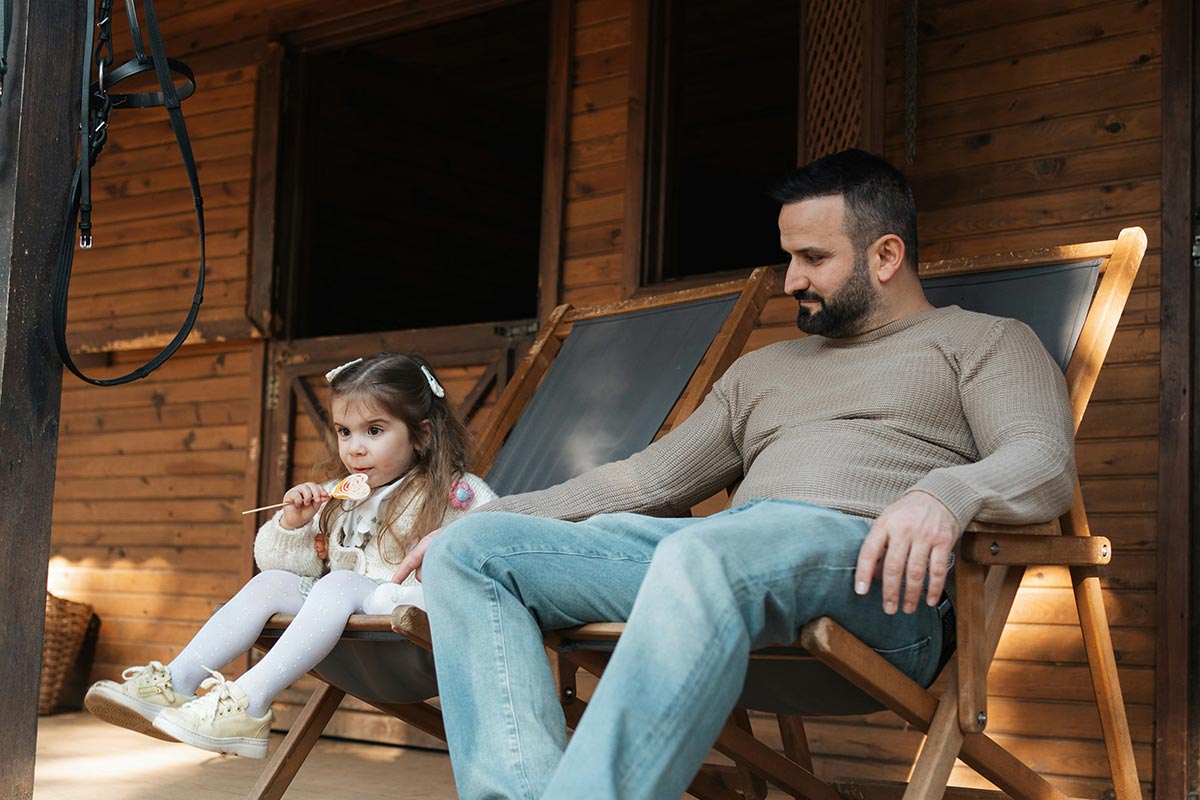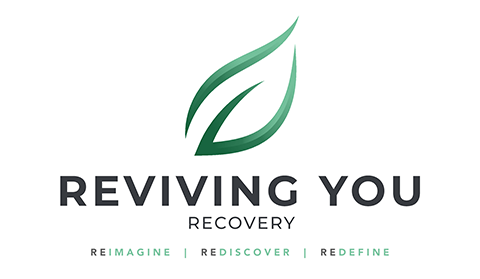How Do I Tell My Kids I’m Going into Rehab?

One of the most challenging parts of deciding to go into drug or alcohol rehab isn’t just the internal struggle—it’s telling the people you love, especially your children. As a parent, you may already feel the weight of guilt, shame, and responsibility. You might wonder: How will this affect them? Will they be scared, angry, confused? What should I say?
At Reviving You Recovery, we know that taking the brave step into treatment is not just for yourself—but for your family, too. And while the idea of telling your kids may feel daunting, it’s also an opportunity for healing, growth, and honest connection. In fact, how you approach this conversation can set the tone for your recovery and your relationship with your children moving forward.
This article is a guide for parents navigating the delicate and emotional task of telling their kids they’re going to rehab—and doing it with love, courage, and care.
Why It’s Important to Tell Your Kids
Even if your children are young or you think they haven’t noticed your struggles, kids are often more perceptive than adults realize. They may not fully understand addiction, but they sense when something’s wrong—when you’re distant, irritable, unpredictable, or emotionally unavailable.
By telling them the truth, in an age-appropriate way, you’re giving them:
- Validation for what they’ve observed or felt
- A sense of security in knowing what’s happening
- A model of honesty and accountability
- Reassurance that your decision is about love and getting better
More than anything, children need to know they are not to blame—and that you’re doing this to become a healthier, more present parent.
Preparing for the Conversation
Before you sit down with your kids, take a few moments to prepare emotionally and mentally. This will help you communicate clearly and calmly, even if the conversation gets difficult.
1. Talk to Your Treatment Team First
Ask the professionals at Reviving You Recovery for support. They can offer advice based on your child’s age, personality, and your family dynamics. In some cases, involving a family therapist may be beneficial.
2. Choose the Right Time
Pick a moment when things are calm—ideally not right before bed, school, or a stressful event. Make sure you have time to answer questions and provide comfort.
3. Be Age-Appropriate
Younger children need simple, clear explanations. Older kids and teens may want more detail. Tailor your message to your child’s emotional maturity.
4. Plan What You Want to Say
It’s okay to write down a few key points or even rehearse. You don’t need a perfect script, but preparation helps you stay grounded.
What to Say (and What Not to Say)
Here are some examples of language you can use based on your child’s age:
For Young Children (Ages 3–7)
- Keep it simple and gentle.
- Example: “Mommy/Daddy has been sick, and I need to go to a special place called rehab to get better. While I’m there, other people will help me feel healthy and strong again.”
- Reassure them.
- “You didn’t do anything wrong. I love you very much, and other people will take good care of you while I’m gone.”
- Avoid scary or confusing words. Don’t use terms like “rehab” or “addiction” without explaining them in child-friendly ways.
For Elementary Age Children (Ages 8–12)
“I’ll be safe and taken care of, and you’ll still be able to talk to me while I’m getting help.”
Be honest, but don’t overwhelm them.
Example: “You may have noticed I haven’t been myself lately. I’ve been having a hard time with something called addiction. It means I’ve been using something that’s not good for me, and now I need help to stop and feel better.”
Let them know it’s not their fault.
“You didn’t cause this, and there’s nothing you could have done to stop it.”
Offer reassurance about the future.
Get Your Questions Answered Now
For Teenagers (Ages 13+)
“I know my actions have hurt you. I want you to know I’m taking responsibility, and I’m committed to changing.”
Give more detail and respect their maturity.
Example: “I’ve been struggling with drugs/alcohol, and it’s affected my health, my relationships, and our family. I’ve decided to get professional help because I want to be better—for myself and for you.”
Encourage open communication.
“You might feel angry, confused, or embarrassed. Whatever you’re feeling, it’s okay. We can talk about it.”
Be accountable.
“I know my actions have hurt you. I want you to know I’m taking responsibility, and I’m committed to changing.”

Answering Their Questions
Expect your kids to have questions—and possibly strong emotions. Some common ones include:
- “Is it my fault?”
Reassure them repeatedly that it is never their fault. - “Will I see you while you’re in rehab?”
Let them know if and how visitation, phone calls, or letters will happen. If visitation isn’t possible, reassure them that you’ll stay connected in other ways. - “Who will take care of me?”
Explain the care plan clearly—whether it’s a spouse, grandparent, or trusted family friend. - “How long will you be gone?”
Be honest about the time frame and emphasize that your focus is on getting better so you can be the best parent possible.
Managing Their Reactions
Every child reacts differently. Some may cry. Others may withdraw, get angry, or pretend not to care. Allow them to express whatever comes up without judgment.
Tips for managing their emotions:
- Stay calm and steady. Even if your child gets upset, your composed presence helps them feel safe.
- Validate their feelings.
“It’s okay to feel scared or mad. I’m here to listen.” - Avoid defensiveness. Let them vent or question without justifying or minimizing your choices.
- Give them time. They may need to process the information and come back with more questions later.
Staying Connected During Treatment
Even while you’re in rehab, there are ways to maintain emotional closeness:
- Phone or video calls: Most treatment centers allow regular calls with children, especially if they’re part of your support plan.
- Letters or drawings: Younger children may enjoy sending or receiving artwork, photos, or notes.
- Family therapy: Many programs, including Reviving You Recovery, offer family sessions to support communication, healing, and rebuilding trust.
Updates from caregivers: If another adult is watching your child, ask for updates on how they’re coping and what support they may need.
When You Come Home
Reentry after treatment is another critical moment for your children. They may expect everything to go back to normal immediately—or they may feel nervous or skeptical.
Key ways to rebuild trust:
- Be consistent. Stick to routines, promises, and your recovery plan.
- Show up emotionally. Be present and available to listen and connect.
- Apologize when needed. Own your past mistakes without wallowing in guilt.
- Include them in your recovery. If age-appropriate, explain what you’re doing to stay healthy—meetings, therapy, self-care.
Why This Conversation Is a Gift
As painful as it may feel, telling your kids you’re going into rehab can become one of the most powerful moments in your family’s story. It’s a chance to:
- Break the cycle of secrecy or generational trauma
- Teach your children the value of honesty, vulnerability, and asking for help
- Begin to heal your relationship through truth, not silence
Kids learn from what we do more than what we say. By taking ownership of your recovery, you’re showing them what true strength looks like.
Final Thoughts
You don’t have to have all the answers or say everything perfectly. What matters most is that you show up with love, courage, and a willingness to be honest.
At Reviving You Recovery, we’re here to support your entire journey—from detox to long-term recovery—and that includes helping you navigate family conversations with grace. Remember, getting help is not abandonment. It’s an act of deep love. And your children will benefit for a lifetime from your decision to get well.
Are you ready to begin your healing—for yourself and your family?
Contact Reviving You Recovery today to learn more about our comprehensive detox and rehab programs designed to support individuals and the people who love them most.
We Accept Most Insurances
We are in network with:






We know insurance coverage can be a source of uncertainty for people. We make sure you have all the information necessary. The great news is health insurance can potentially cover the total treatment costs. If you don't have insurance, we offer cash payment options for our treatment programs and are committed to working with clients regardless of financial situations.
